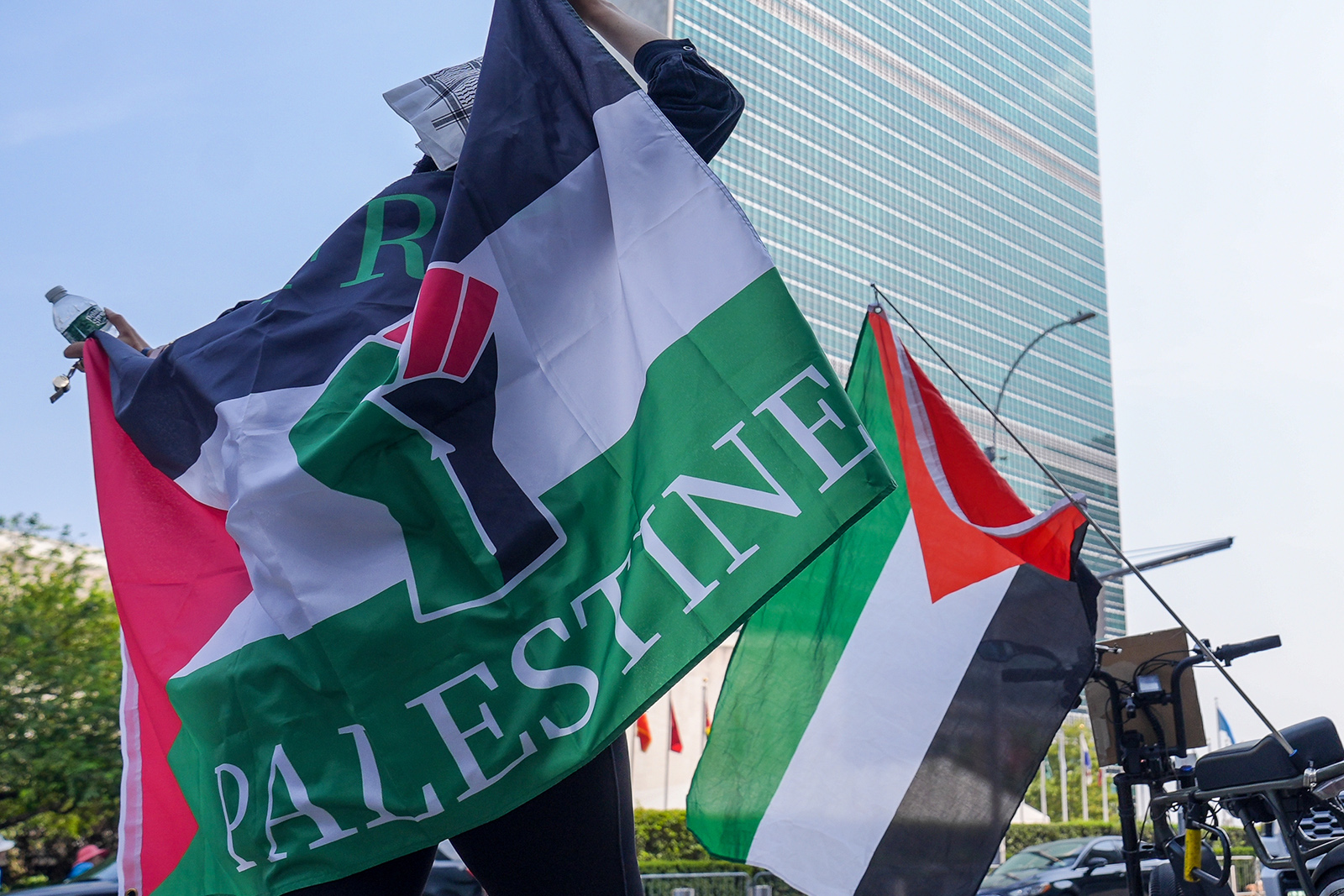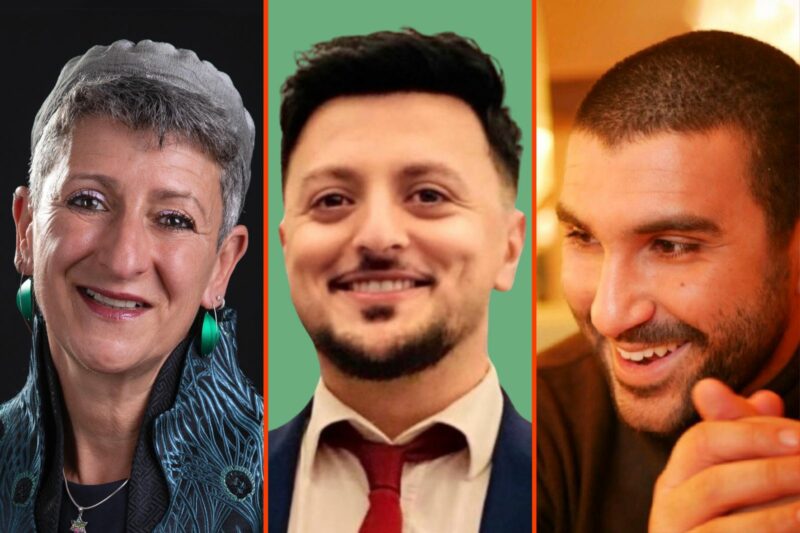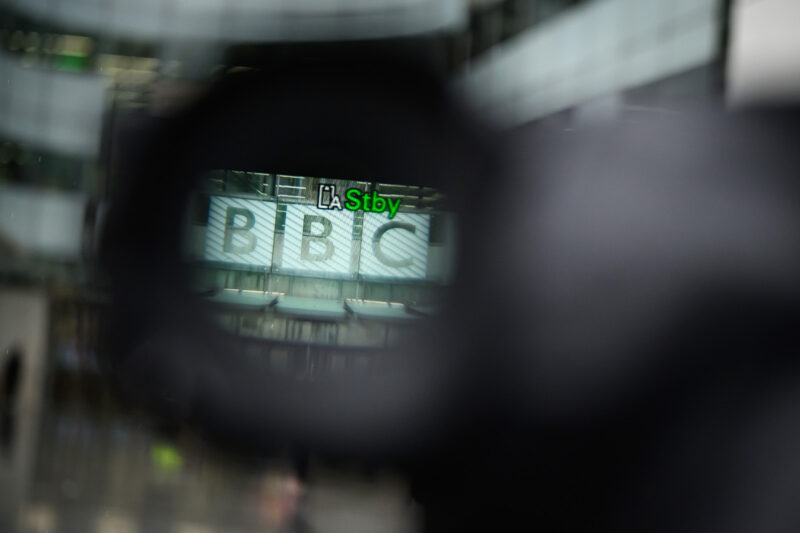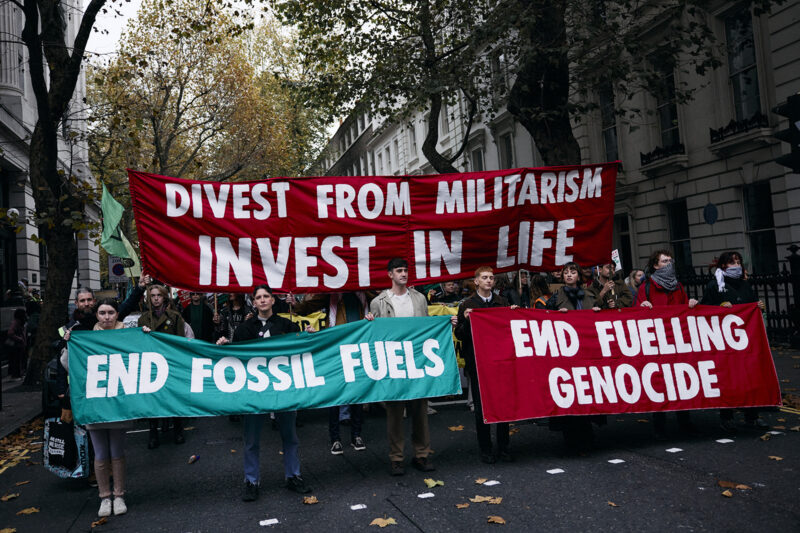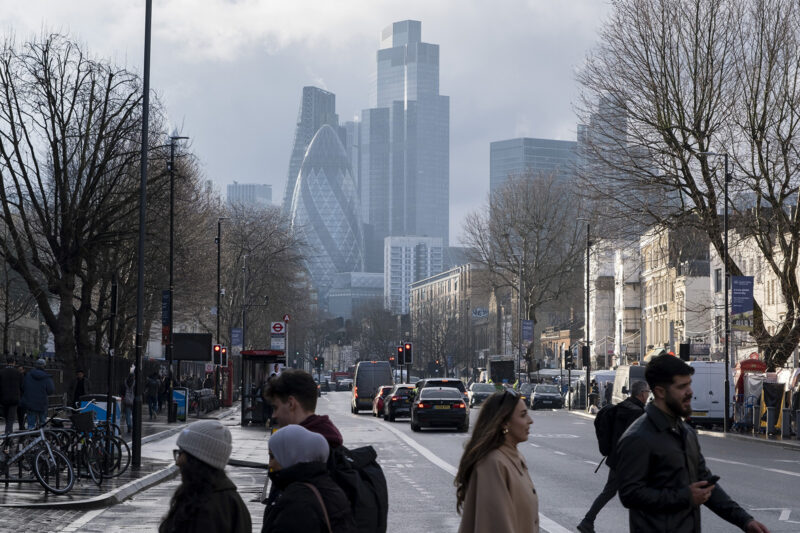Halal investors and pension holders ‘unknowingly profiting’ from war in Gaza

Sharia-compliant investment funds and pensions have more than $1bn tied up in firms accused of helping Israel destroy the coastal strip, analysis reveals
British Muslims with investments and pensions in sharia-compliant funds may be unknowingly profiting from Israel’s war in Gaza and the occupation economy, Hyphen has found.
Six major Islamic investment funds have shares worth more than a billion dollars in companies whose technology has reportedly helped Israel’s war effort in Gaza, our analysis suggests. All are available to private UK investors, while most sharia-compliant workplace pension schemes — including those run by Aegon, Aviva and Fidelity — are invested in one, the HSBC Islamic Global Equity Index Fund.
Between them, the six funds have also, variously, held shares in: a company providing the Israeli government with fighter jet fuel; one that manufactures missile navigation components used by the Israeli air force; another whose Tasers are used by Israeli police; and a business whose charitable arm donated to the Friends of the IDF, a US charity that supports “Israel’s protectors”.
Labour MP Abtisam Mohamed said she was “appalled” by our findings and claimed the sector has “shown itself willing to sacrifice integrity in the pursuit of profit”.
Muslim investors also responded with alarm. Haz Khalisadar, who has investments in three of the funds identified by this investigation, said he was “deeply disturbed” to learn that he may have been profiting from Israel’s actions. “I cannot in good conscience allow my money to support such companies,” he said. “I will be withdrawing my investments.”
Muslims with money to invest often like to ensure the cash is not being used to violate Islamic principles. Halal investment funds sprang up in the 1980s to fill the gap, advertising themselves as avoiding impermissible (haram) industries that are considered harmful as well as the payment or collection of interest, which is forbidden in Islam.
One of the most significant is HSBC’s Islamic fund, which claims to deliver “investment returns and better outcomes for society as a whole”.
But the fund’s annual report shows that last year it purchased shares in Booking Holdings, Booking.com’s, parent company, for $30.7m — despite both being named by the UN as listing properties in the Israeli-occupied West Bank and East Jerusalem, where settlements are widely considered illegal under international law.
The fund also recently held shares in Honeywell International, which it sold in 2024 for $23.1m. An Al Jazeera investigation in June last year revealed that a Honeywell missile component had been recovered from the scene of a strike on a school in Gaza that killed at least 40 people.
Yet the size of these investments is eclipsed by the fund’s stocks in Microsoft and Alphabet, Google’s owner, valued at $444m and $370m respectively as of 31 December 2024.
Microsoft struck a deal in 2021 allowing Israel’s military surveillance agency Unit 8200 to utilise its Azure cloud technology to collect and store millions of recordings of Palestinians’ phone calls, according to a joint investigation by the Guardian and two outlets in Israel. Microsoft said it had not known what kind of data Unit 8200 intended to store when it made the deal and has launched an “urgent” inquiry.
Google, meanwhile, has a joint $1.2bn “Project Nimbus” contract to provide Israel’s government and military with cloud computing and AI infrastructure. Leaked documents obtained by the Washington Post in January 2025 showed how the firm reportedly “rushed to sell AI tools to Israel’s military” after 7 October 2023. The director general of the Israeli government’s National Cyber Directorate told a Tel Aviv conference in early 2024 that the Nimbus contract was enabling “phenomenal things… in combat, which constitute a significant part of victory”.
To standardise and harmonise the sector’s practices and reporting in accordance with sharia principles, six Islamic financial organisations’ co-founders registered the Accounting and Auditing Organization for Islamic Financial Institutions (Aaoifi) in Bahrain in 1991. It is now the main standard-setter for Islamic financial institutions globally. Businesses can be sharia-compliant if no more than 5% of their total income comes from haram sources. Any profits from haram sources must be donated to charity, a process known as purification.
But those standards focus on business activities involving alcohol, gambling and weapons, and the payment of interest. Activities that Muslims may object to but are not explicitly haram, such as profiting from illegal Israeli settlements, can be deemed sharia-compliant.
“Dividends from a company whose core business is permissible but whose conduct some view as unethical would not be cleansed unless the revenue itself falls into a prohibited category,” said Ibrahim Khan, co-founder of the Islamic Finance Guru website.
“That is a recognised gap and an area scholars are actively discussing.”
Harris Irfan, the former global head of Islamic finance at Barclays Capital and co-founder of Deutsche Bank’s Islamic finance team, added: “It is very possible, very probable, that Muslims who buy [into] Islamic funds are unknowingly profiting from so-called bad activities.”
Hyphen analysed six funds’ audited financial statements and databases of holdings.
Among them were details of investments by two Islamic funds run by iShares, both owned by investment giant Blackrock; the Schroder Islamic Global Equity fund; Saturna Capital’s Al-Kawthar Global Focused Equity ETF; and the Wahed FTSE USA Shariah.
Only Saturna and Schroder actively choose their investments. The others mirror those of Islamic indexes — ready-made groups of stocks screened for sharia-compliance by third party providers — in a process known as tracking.
In all, Hyphen calculated that the funds recently held $1.73bn worth of shares in 10 companies accused of aiding Israel’s destruction and occupation of Palestinian territories — more than a fifth (22.8%) of the combined market value of the shares held in these funds.
This includes stocks in Valero Energy Corporation, whose subsidiary is contracted to provide the Israeli government with fighter jet fuel; Axon Enterprises, whose Tasers have allegedly been used to “torture” Palestinians in Israeli custody; and Monster Beverage Corporation, whose charitable arm donated $322,000 to Friends of the Israeli Defence Forces in 2023.
Umer Suleman, chief risk officer at Wahed, sent a letter to Aaoifi in March 2024 — seen by Hyphen — in which he called for a new “support for genocide” criteron to be added to its screening methodology. Suleman claimed Aaoifi was receptive but that any change would be a “long process”. Aaoifi was approached for comment.
He said he had also tried unsuccessfully to lobby the scholars at the FTSE USA Shariah Index, which Wahed’s fund tracks.
“I think the sharia scholars in the industry need to up their game and not be passive about sharia screening,” he said. “We’re asking them to enhance their screening criteria to include supporting any organisation or company that supports human rights violations.”
But if Wahed tried to remove the offending companies from its fund unilaterally, the fund would “be closed down for lack of fiduciary duty, responsibility, towards our clients”, Suleman added.
“The financial sector has shown itself willing to sacrifice integrity in the pursuit of profit,” said Mohamed, MP for Sheffield Central. “I will be encouraging my constituents to scrutinise their pension funds carefully.”
Independent MP Iqbal Mohamed, a member of of the Islamic and ethical finance all-party parliamentary group, said he believed that “investments in firms or products that cause harm, be that mental, physical or emotional, cannot be considered sharia compliant” — and that halal funds had a “moral and ethical duty to divest”. He called for the Financial Conduct Authority regulator to start playing a role in supervising the sharia-compliance of these products in future.
A Muslim Council of Britain spokesperson said: “British Muslims should have confidence that their savings are not tied up with companies profiting from war and oppression.
“If funds promoted as sharia-compliant are linked to the occupation economy, that raises serious ethical questions.”
Saturna and Schroder said their investments had been deemed sharia-compliant by scholars. Saturna added that US legislation blocks firms from boycotting Israel.
HSBC and Blackrock declined to comment, while Microsoft, Alphabet, Booking Holdings, Monster Beverage Corporation, Valero, Axon and Honeywell did not respond to approaches from Hyphen.
 Newsletter
Newsletter



